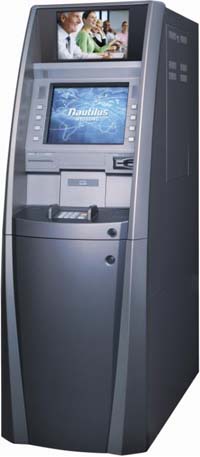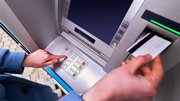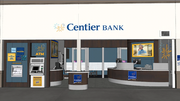Cost, consumer behavior hinder cash recycling at ATM
Deposit automation is laying the groundwork for cash recycling ATMs, but it may be years before U.S. ATM deployers embrace the technology.
May 4, 2009 by Tracy Kitten — Editor, AMC
NCR Corp.'s John Pillman says U.S. financial institutions and independent sales organizations are seriously analyzing cash recycling technology at ATMs and other deposit-taking self-service terminals.
The economic downturn, coupled with the relatively low cost of cash, which continually increases in circulation, are likely catalysts for the new cash recycling interest. But experts agree it could be five years before the technology takes off in North America.
"Based on the price of cash recycling, the U.S. market is not ready," said Antonio Kim, Nautilus Hyosung America Inc.'s senior sales manager for financial institutions. "Even with deposit automation, people are not depositing cash right now in the U.S., and you have to have the cash part in order to make cash recycling viable."
It all goes back to customer behavior, Kim says.
"In Korea, Japan and China — the Asian market generally — cash recycling is more accepted," he said. "About 60 percent of ATMs in Korea are cash recycling, and the ATM users there are very accustomed to depositing cash at the ATM. Right now, the U.S. is not ready."
But that may soon change in the United States, as bank tellers encourage more consumers to use branch ATMs for deposits.
A move to self-service
With the economic downturn, more banks and credit unions are relying on self-service to optimize their branches, says Alan Walsh, the vice president of banking for
Wincor Nixdorf Inc. (USA). And customers have accepted self-service, so adoption is not so much the worry. As more deposits are moved from the teller to the ATM within the branch, cash recycling at the ATM is expected to become more viable.
From the branch, the technology will likely make its way to off-premises machines — an adoption evolution just the opposite of what has occurred in other parts of the world.
Mike Shirk is the director of deposit automation strategy for
Diebold Inc. He says the U.S. market's use of cash and the relatively low cost of cash (prime rate) are to blame for the polarized perspective on cash recycling.
"A lot depends on the amount of cash that's coming in and how the bank or credit union sees their cash environment," Shirk said. "Just beyond the technology of cash recycling we look more at the cash environment itself. If cash comes in at the ATM in the branch, then you could dispense that cash at the teller, because it's all part of the same cash environment. That cuts down on the number of times you have to visit the vault, and that's an advantage."
After cash deposits increase at on-premises ATMs, the expectation is to see an uptick in cash deposits at off-premises machines.
"In the U.S., the primary driver of cash deposits tends to be merchants," Shirk said. The branch and the teller
Cash recycling, though also applicable in the branch environment, is touted for its ability to shave dollars and cents from cash-in-transit expenses. If ATMs dispense the cash they take in, cassette replenishment can be less frequent.
The real savings from that perspective would be on the off-premises side — a side, at least in the United States, that is dominated by ISOs with less-expensive, entry-level equipment. For an ISO to invest in costly cash-recycling technology would not make sense, at least not right now.
Walsh agrees cash recycling in the United States is in infancy and perhaps even "pre-infancy."
"The big driver we see in the U.S. right now is deposit automation, and I have no doubt that recycling will become the norm in the U.S. in four to five years," he said.
Where cash recycling is getting a boost in the U.S. is in the teller line because the business case is clear, Walsh says.
|
The Monimax 8000 from Nautilus Hyosung is a cash-recycling ATM targeted toward the Chinese FI market. |
Differing markets
Like Asia-Pacific, other parts of the world also have embraced cash recycling.
In its latest edition of the annual western Europe ATM survey, "ATMs and Cash Dispensers Western Europe," Retail Banking Research Ltd. says cash recycling continues to increase in popularity among western European ATM deployers. The region's number of ATMs with automated deposit functionality rose by almost 50 percent over the course of 2008 and is now available on 36,700 ATMs.
Twenty-one percent of all automated-deposit accepting ATMs in western Europe now contain recycling technology, RBR says.
In the United States, the expense of the technology has made it impractical, since the domestic demand for the technology is relatively low. And the country's use of cash also plays a role, said Ji Hoon Kim, Nautilus Hyosung America's senior software engineer.
In the United States, because check deposits are far more common than cash deposits, recycling technology is not really viable, Kim says.
Included In This Story
Hyosung Americas is a global human experience maker that bridges the physical and virtual worlds. We do this by harnessing our unique combination of a manufacturer’s soul with an innovator’s mindset to build a platform of integrated products, services, and ideas that improve life’s day-to-day interactions for everyone.
Request Info
Learn More
The ATM Industry Association, founded in 1997, is a global non-profit trade association with over 10,500 members in 65 countries. The membership base covers the full range of this worldwide industry comprising over 2.2 million installed ATMs.
Request Info
Learn More
As a global technology leader and innovative services provider, Diebold Nixdorf delivers the solutions that enable financial institutions to improve efficiencies, protect assets and better serve consumers.
Request Info
Learn More

 ChatGPT
ChatGPT Grok
Grok Perplexity
Perplexity Claude
Claude














